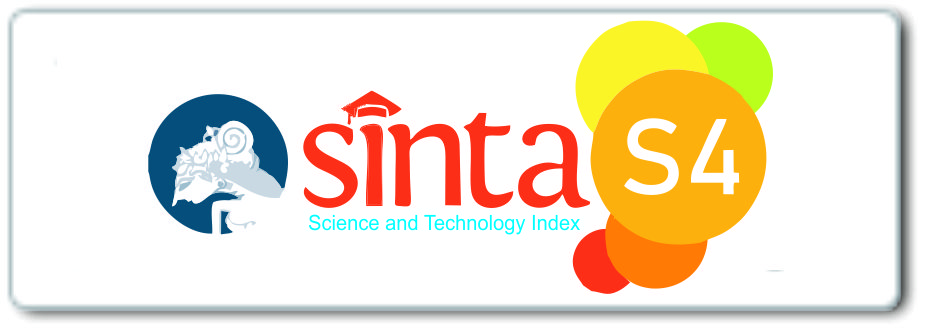Implementation of Sharia Marketing to increase Millennial Interest in Financing: Evidence on BSI Dharmawangsa Branch Office
DOI:
https://doi.org/10.21154/etihad.v4i1.8583Keywords:
Sharia marketing, Evaluation, Millennial interest, Financing productsAbstract
Bank Syariah Indonesia (BSI provides BSI Griya Simuda financing that has been tailored to the needs and abilities of the millennial generation. Marketing carried out in Islamic financing must be in accordance with the provisions of Islamic sharia. So this research aims to find out the implementation and evaluation of online and offline sharia marketing in increasing millennial interest in financing of BSI Griya Simuda.. Research Methods: This research approach uses a qualitative approach, by analysing data obtained from interviews, observation and documentation. Results: The results of this research show that in marketing BSI Griya Simuda financing in managerial and operational had carried out online and offline have applied the principles of sharia marketing and the characteristics of sharia marketing, namely theistic (rabbaniyyah), ethical (akhlaqiyyah), realistic (al-waqiyyah) and humanitis (al-insaniyah). Conclusion:Then the results of the evaluation found that the millennial generation's interest in BSI Griya Simuda financing is good, but in marketing there are obstacles and challenges, namely there are still efforts to compare conventional banks with Islamic banks in terms of prices and products.
References
Ardyanfitri, H., Pratikto, M. I. S., & Faizah, E. A. K. (2019). Analisis Kesehatan Bank Dan Potensi Financial Distress Menggunakan Metode Rgec Pada Bank Btpn Syariah Tahun 2014-2018. Jurnal MEBIS (Manajemen Dan Bisnis), 4(2), 131”“141. https://doi.org/10.33005/mebis.v4i2.63
Bayanuloh, I. (2019). Marketing Syariah (1st ed.). CV Budi Utama.
BSI, B. (2021). Peringati Hari Pelanggan, Bank Syariah Indonesia Perkuat Ultimate Service melalui Transformasi Digital.
Damayanti, S. M., & Zakarias, R. (2020). Generasi Milenial sebagai Pengguna Fintech: Dampaknya terhadap Literasi dan Inklusi Keuangan di Indonesia. Ekonomi Dan Bisnis, 7(2). https://doi.org/10.35590/jeb.v7i2.2193
Effendy, M. (1996). Suatu pendekatan berdasarkan quran dan hadis. Palembang : Al-Mukthar, 1996.
Fatmawati, A., Yudha, A. T. R. C., & Syafaq, H. (2020). Kontrak Kerja dan Kesejahteraan ABK Nelayan Perspektif Etika Bisnis Islam di Sarangmeduro, Jawa Tengah. Nukhbatul ’Ulum: Jurnal Bidang Kajian Islam, 6(2), 298”“313. https://doi.org/https://doi.org/10.36701/nukhbah.v6i2.240
Ibeng, P. (2020). Pengertian Minat, Karakteristik, dan Contohnya Menurut Para Ahli. Pendidikan.Co.Id.
Khoiri, H. A., & Arghawaty, E. (2020). Menganalisis Nilai IHSG Beserta Faktor-Faktor Yang Mempengaruhi di Era Pandemik Covid-19. Jurnal Riset Akuntansi & Keuangan Dewantara, 3(2), 110”“121.
Kotler, P., & Keller, K. L. (2015). Marketing Management (S. Wall (ed.); 15th, glob ed.). Pearson.
Lim, R., & Santoso, J. M. J. P. (2019). Kajian perancangan pasar milenial : pasar yang merespon perilaku milenial. 1(2), Phillip Kotler and Nancy Lee. (2007). Marketing In.
Mawadah, N. N., & Marsudi, K. E. R. (2023). Implementation of Good Corporate Governance Principles in Bank Syariah Indonesia Nganjuk Sub-Branch. Etihad: Journal of Islamic Banking and Finance, 3(2), 102”“110.
Muniroh, L., Suryana, D., Budiarto, E., Ekonomi, D. F., Keterangan, N., Dramaga, K., Tamansari, D., Tenjolaya, K., & Sukajaya, D. (2018). Mengembangkan Potensi Masyarakat Melalui. 02.
Prisuna, B. F. (2022). Efektivitas Pemanfaatan Weblog Sebagai Alternatif Media Pembelajaran di Masa Pandemi. DAYAH: Journal of Islamic Education, 5(2), 266. https://doi.org/10.22373/jie.v5i2.12739
Sayidah Nur. (2020). Metodologi penelitian disertai dengan contoh penerapannya di dalam penelitian (Sayidah nur (ed.); 1st ed., Vol. 1). Zifatama Jawara.
Schorn, A., Vinzenz, F., & Wirth, W. (2022). Promoting sustainability on Instagram: How sponsorship disclosures and benefit appeals affect the credibility of sinnfluencers. Young Consumers, 23(3), 345”“361. https://doi.org/10.1108/YC-07-2021-1355
Statistik, B. P. (2019). Profil Kemiskinan di Indonesia. Berita Resmi Statistik, 56, 1”“12. https://www.bps.go.id/pressrelease/2020/01/15/1743/persentase-penduduk-miskin-september-2019-turun-menjadi-9-22-persen.html
Sugiyanto, S., & Yahanan, A. (2022). Perlindungan Hukum Pengarang Sebagai Pemegang Hak Cipta Dalam Penerbitan Buku. Lex LATA, 4, 119”“130. http://journal.fh.unsri.ac.id/index.php/LexS/article/view/1376%0Ahttp://journal.fh.unsri.ac.id/index.php/LexS/article/download/1376/557
Sukoco, A., Anshori, Y., & Yudha, A. T. R. C. (2020). Strategies To Increase Market Share For Histopatological Equipment Products (Brand Sakura): Case Study in Management of a Sole Agent Company. SINERGI , Volume 10 Number 2 September 2020 SINERGI , Volume 10 Number 2 September 2020, 10(2), 19”“26.
Sula, M. S., & Kartajaya, H. (2006). Syariah marketing (1st ed.). Mizan pustaka.
Thomson Reuters and Dinar Standard. (2018). State of the Global Islamic Economy Report 2019/20. Dubai International Financial Centre.
Walfajri, M., & Hidayat, K. (2021). Sasar nasabah milenial, BSI luncurkan Griya Simuda. KONTAN.CO.ID.
Wijayanti, I., Ryandono, M. N. H., Yudha, A. T. R. C., & Hj Petra, D. H. S. P. (2021). Financial Inclusion through Zakat Institution: Case Study in Indonesia and Brunei Darussalam. 5(2). https://doi.org/10.28918/ijibec.v5i2.3354
Wijayanti, T. N., & Hidayat, F. (2020). Minat Generasi Milenial Terhadap Produk Pembiayaan KPR Bank Syariah. Equilibrium: Jurnal Pendidikan, 8(2), 170”“180. https://doi.org/10.26618/equilibrium.v8i2.3460
Yudha, A. T. R. C. (2015). Jaminan dalam Aqad Pembiayaan Muá¸Ärabah Perbankan Syariah di Wilayah Surabaya. Al-Tijarah, 1(1), 37”“57.
Yudha, A. T. R. C., Amiruddin, A. R., Hilmi, A. F., Kaffah, A. F., Fauzi, F. N., Evarianti, I., Maghfiroh, L., & El Nadia, N. (2020). Fintech Syariah: Teori dan Terapan (Edisi Perd). Scopindo Media Pustaka.
Yudha, A. T. R. C., & Kafabih, A. (2021). Halal Industry During the COVID-19 Pandemic is The Hidden Blessing: Industri Halal Selama Pandemi COVID-19 Adalah Berkah Tersembunyi. El-Qist: Journal of Islamic Economics and Business, 11(1), 17”“32. https://doi.org/https://doi.org/10.15642/elqist.2021.11.1
Yudha, A. T. R. C., Pauzi, N. S., & Azli, R. binti M. (2020). The Synergy Model for Strengthening the Productivity of Indonesian Halal Industry. 4(28), 186”“199. https://doi.org/10.26740/al-uqud.v4n2.p186-199
Yudha, A. T. R. C., & Rijal, A. (2018). Seminar Nasional dan Call for Paper: Manajemen, Akuntansi dan Perbankkan 2018 | 1090. 1090”“1104.
Zustika, A. F., & Yudha, A. T. R. C. (2020). Peer to Peer Lending System in Hifdul Maal Perspective: Evidence From he Fintech Company of Investree. Jurnal Ekonomi Syariah Teori Dan Terapan, 7(8), 1585”“1597. https://doi.org/10.20473/vol7iss20208pp1584-1597
Downloads
Published
Issue
Section
License
Copyright (c) 2025 Ana Toni Roby Candra Yudha, Hilya Zulfiah, Akh. Yunan Atho'illah

This work is licensed under a Creative Commons Attribution-NonCommercial 4.0 International License.
Etihad: Journal of Islamic Banking and Finance allow the author(s) to hold the copyright without restrictions and allow the author(s) to retain publishing rights without restrictions, also the owner of the commercial rights to the article is the author.







